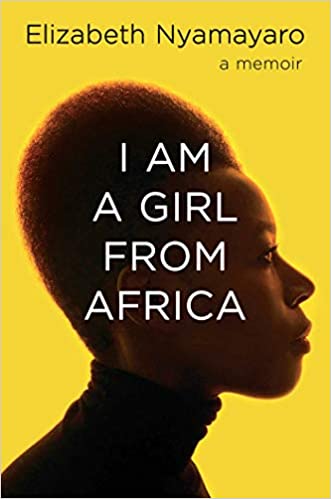Anne Hathaway and Elizabeth Nyamayaro on Building Compassion and Gender Equity
Nyamayaro shares insights from her new memoir, 'I Am a Girl From Africa,' and how her upbringing in Zimbabwe shaped her humanitarian work.
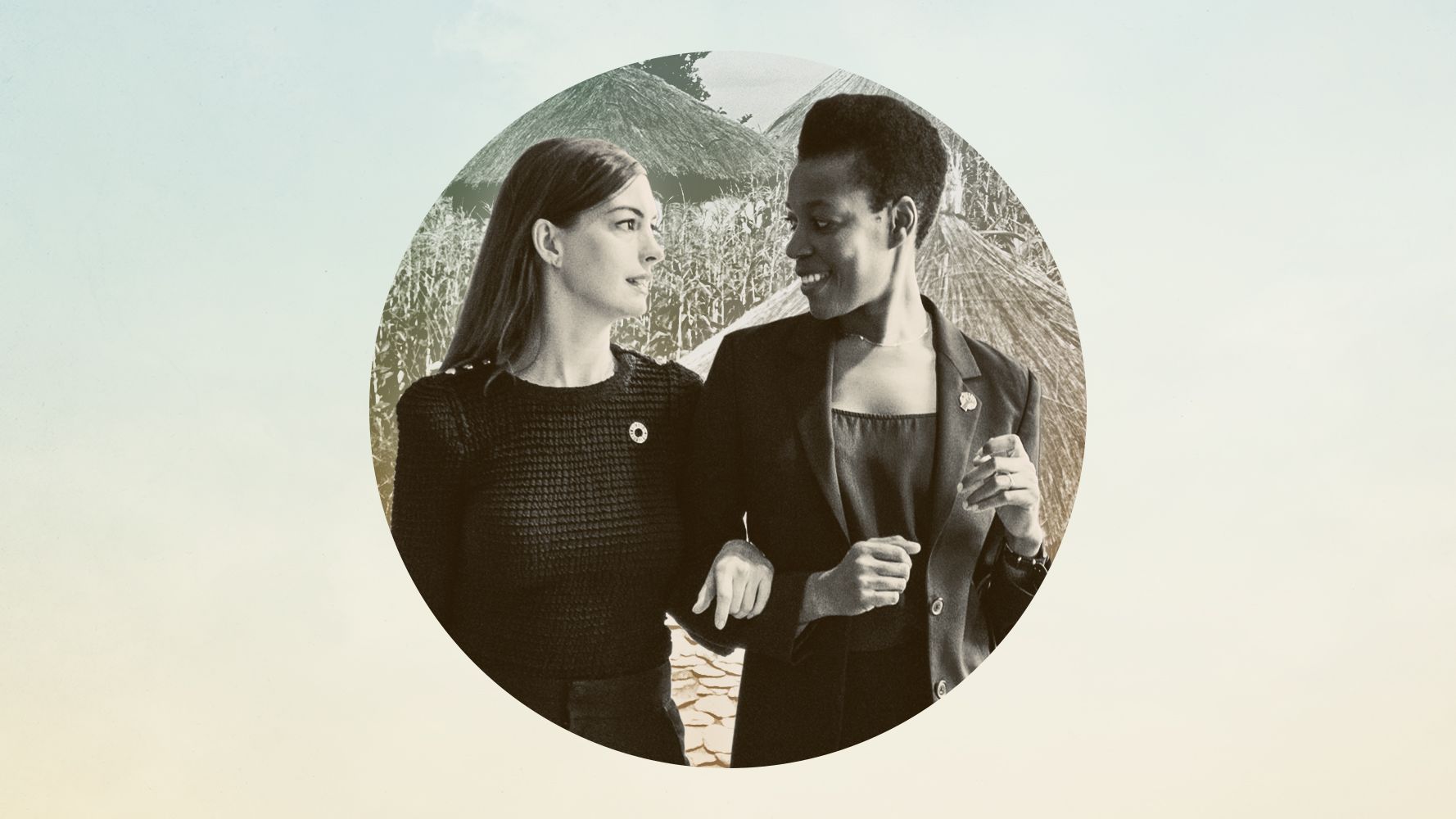
Elizabeth Nyamayaro's memoir, I Am a Girl From Africa, is not just a recitation of her life's events. Instead, in poetic and powerful ways, the former United Nations senior advisor shows how both momentous obstacles and seemingly insignificant interactions can transform how you see the world and change the world. In Nyamayaro's case, that change has included her UN Women solidarity initiative, HeForShe, which has become one of the most formidable catalysts for gender equity since its launch in 2014. In honor of the release of her book today, Nyamayaro sat down with close friend, Oscar-winner, and fellow humanitarian Anne Hathaway. During the wide-ranging and inspirational conversation, they unpack the building blocks of compassion, the changes in perspective that need to occur to move the needle on gender parity, and why the African principle of Ubuntu may be the key to a better, more empathetic world.
Elizabeth Nyamayaro: Hi Anne. It's weird to see you this way because I just want to hug you and hold you.
Anne Hathaway: Seeing you was already going to brighten my day anyway. But that is a fantastic yellow [top].
EN: [Yellow] is one of my favorite colors because it reminds me of my upbringing in a small village in Zimbabwe, where I used to wake up to these bright skies. And now I wear it as a way to carry Africa with me.
AH: Well, your book, I Am a Girl From Africa, it feels like a gift to and for Africa.
EN: Yes, it really is. Because it's a story about my life and what it felt like being a girl growing up in a small village in Africa. It's also called "a girl" because I know that my story is one of millions of stories from the continent…Hopefully for other young girls in Africa to see themselves through my story and for them to see what's possible when we dream big.
AH: Well, we've been friends for many years. So I can't think of anyone else [better] for young people to look up to. [We] met through our mutual mentor, Susan. And I remember the phone call I got from Susan after you and she had connected. She said, "I just met the most amazing woman." And I think that anybody that knows you would describe you in that phrase. [But] you called your book, I Am a Girl from Africa. Why was it so important to you to begin the story when you were a girl?
Get exclusive access to fashion and beauty trends, hot-off-the-press celebrity news, and more.
EN: I think it's very easy to look at somebody and be impressed by what they've accomplished or who they are, from a title standpoint. I was just recently a senior advisor at the United Nations. And I think that's sort of the identity that people saw me through. And I wanted them to understand that there's a big backstory behind that. That I haven't always been this “powerful women” at the United Nations. That I was just a girl in a small village in Zimbabwe but with a very big dream who refused to be defined by where I was born or be limited by my current circumstances.
AH: I felt so much of the book was a love letter to Zimbabwe. I've never been there but you made me feel the weather. And you made me feel nature. So what was it like to grow up in Zimbabwe? And what would you like people to know about where you grew up?
EN: What I want them to know is just what a wonderful childhood I had. I was raised by my Gogo—my grandmother. And our village sat on this hill that was surrounded by rolling green pastures and farmlands. The biggest thing for me is how we lived as a community. We looked out for each other. And that was a lovely thing that if you needed anything you only had to ask. And often someone offered what they knew you needed before you asked because we farmed together, we shared our food together. I think it's something that we often don't talk about as well. In the media, there's often this sort of single narrative of Africa: of poverty and the disease. And nobody bothers to show just how lovely life can be [there].
AH: I love to hear that your childhood had so much beauty in it. Because when I think of you and the way you approach life, I can't think of anyone more elegant, chic, and with such an innate appreciation for beauty. Do you think you got that from being a child in Zimbabwe?
EN: The very core of who I am is literally inspired by where I come from. I remember as a child, my grandmother—my Gogo—explaining to me that, before I was anything else, I was foremost a child of the African soil. And that meant being incredibly blessed. And so yes, my love for beauty, my love for community, my love for family is really because of how I was raised. And I think that's something that you and I connected on as well because you are so much about the community. And I remember once we were friends, meeting some of your friends; you have friends who you've had since you were a child, and you're so protective of that, and you build networks, and you build communities. So I also got that from my village and I think that's how we connected.
AH: I think that it's so important because who better to share the good times with [than friends]? But not every single time is good…You had a near death experience when you were a child. Would you mind talking about that?
EN: At the age of eight, everything changed in our village. We had a severe drought that literally left us with nothing to eat or drink. And we went for days without food. And I remember one day, I was so weak from hunger that I was unable to move. And in fact, in my young mind, I thought I was going to die. But then a miracle happened. This girl in a blue uniform, who happens to be an aid worker with the United Nations, found me [laying on the ground]. She gave me a bowl of porridge. And that literally saved my life. When I then found out who she was, and I realized she worked for the United Nations, and I thought, "Well, I too just want to be the girl in the blue uniform." Because I have to find a way to make a difference in the lives of others in a similar way that this girl had made a difference to my life. And so that was really the moment that sparked my dream to become a humanitarian.
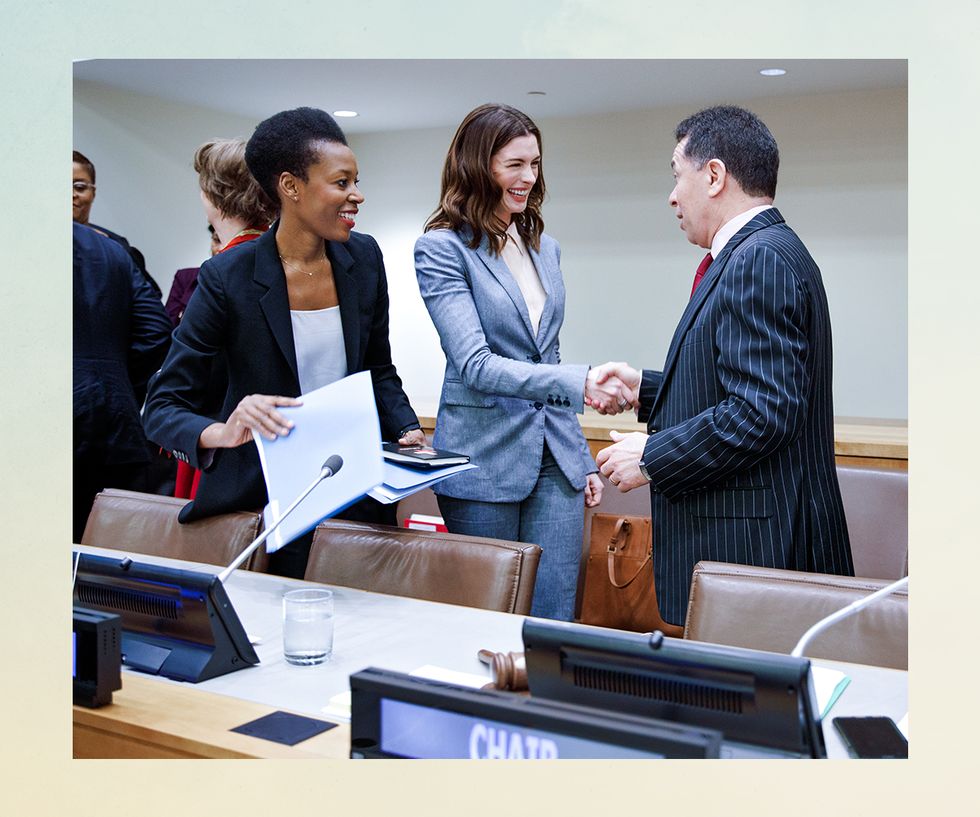
Nyamayaro and Hathaway, in her capacity as a Global Goodwill Ambassador, meets with others at the UN.
AH: So we were in the UN Women offices when you told me that story for the first time. And then a few years later, we sat on my kitchen table, and you said, "Annie, I'm writing a book. And I have the first chapter." And I didn’t realize that I was the first person that you read it to!
EN: Of course you were!
AH: I was obviously so moved. I knew the story, but that was the first time I had heard your voice as a writer… But you are an innately private person. So what was it that say made you go, "This is the moment I'm opening up. I want to share my story.”
EN: So many things actually. But let's just go back to that evening at your home, at the kitchen table, having dinner. It was such a magical moment. Because I knew that I wanted to write a book… but I was feeling so insecure about it. I wrote the first chapter. And then I read it to you. And you were so responsive to it. And I just thought, "Okay, maybe I went down a good path, because I trust your taste." But yes, I tend to be quite private. But then I realized speaking to [our mentor] Susan, and speaking to you, that there was so many girls and young people who could benefit from hearing my story.
I remember in my early 20s having a moment when I left African continent, I was in London for the very first time, trying to pursue my dream. And there were so many things that happened when I was there. And I just remember thinking, "Maybe one day I would like to write a book.” But it took more than a decade to actually have the courage to do it. And I realized when we look at the world right now, the issue of representation really matters. I think it's time that minorities, people who look like me, are also able to own our stories and share them through our own voices, so that other people who look like us, can see what's possible. So I decided to put my own discomfort to the side and try to do this for my continent and for girls who look like me.
AH: I swear on almost every page praying that every young person in the world would read this. And I found myself also praying that every single person in a position of privilege and power would read the book, to understand, to hear firsthand a story of the triumph of grit, and hard work, and determination. You've faced so many obstacles along the way. And you talk about your beloved Gogo—who now feels like a member of my family—and you talk about the wisdom that she gave you that helped you in those moments. Can you tell us a bit about some of that wisdom, specifically, Ubuntu?
EN: Ubuntu is the very essence of who we are as Africans. It's an ancient African philosophy that recognizes our shared humanity. It literally means, "I am, because we are. And because we are, you are." It’s this idea that our humanity binds us and connects us to each other, no matter who you are, or where you are from, or what you believe in. And this for me was the core of what it meant to be part of a community. Ubuntu is really the understanding that, when we recognize that we are all connected, it's a lot easier for us to treat each other with compassion. And it's also what further motivated me—besides this one incident with a girl with the blue uniform—to want to do good. Because understanding that you're part of a collective also means understanding that you have to play your part to make a difference in the lives of those around you… It was the fuel that gave me energy when everything else was falling apart. And I almost felt like my dream was never going to come true. But I knew there was a bigger purpose, and I knew that I had to do it, because achieving my dream would also improve the lives of so many people.
AH: I just want to sit for a second to make sure everybody just heard that. Because people talk a bit a lot about what's wrong with the world. And then I look at you, and some of the stories that you shared in the book so generously, and it seemed that that sense of community was an undercurrent through all of them. And I wrote a quote down, because I felt like it was appropriate to this conversation and what your achievement is here. It's from Maya Angelou, and it says, "If you're going to live, leave a legacy. Make a mark on the world that can't be erased." If you did nothing else, you have made a legacy. And with this book, you're ensuring that it cannot be erased. You're sharing it and I think that it's going to leave a huge mark on anybody who reads it, especially young readers.
What would you tell yourself at the age of eight? A girl who doesn't know the legacy that she's going to leave.
EN: The first one is: Never ever give up… As you know from the book, there were so many moments when most people would have given up. And I didn't give up because of this lesson from Gogo that we never, ever give up. And then something I would tell myself is: Your dreams are valid. And you should chase them no matter where you're born, or what your kind of circumstances look like.
AH: What was it like to have to go back to those difficult times? To have to share things that feel so vulnerable—because I think that we all tend to maybe armor ourselves a little bit to get through the world. But you're showing people really who you are, what you're made of, what these formative experiences are, and I think that's really brave.
EN: I know that most people would think that it was difficult. But it wasn't actually… I remember arriving in London in my 20s to pursue my dream, and I literally had 250 pounds to my name. I didn't know anyone in London—no friends, no family—I was just determined to pursue this dream. Everything that could have gone wrong, went wrong. But what was also jarring for me was just how the perception of who I am—which I had always been proud of—became something I had to constantly defend. Because the way that people perceived Africans—most people held these biases of who Africans were that were in complete contradiction to how we see ourselves.
I even remember watching television and seeing in fundraising commercials, Africans depicted as lazy or waiting to be saved, endlessly walking around refugee camps. And we're never portrayed as protagonists of our own stories, even though in our communities, we are our own heroes. We take care of each other and we uplift our own communities. Because even just trying to get a job became nearly impossible because I knew that people saw me as less than because I was “this girl from Africa.” That I wasn't worthy of a job in a British company. But then I realized that some of these sentiments were not always coming from a place of hate, but rather from misinformation, and learned biases, and what the media told them. And so that's the really the first moment that sparked my dream to think, "Maybe I can be part of shifting that narrative and showing people what Africa means to me—the Africa that I know and love."
Fast forward to writing the book: Once I made the decision that I was going to write the book, I decided then it had to be the truth, and nothing else but the truth. And I had to tell it as it happened and put my own discomfort to the side. So it was almost liberating since this was something I'd wanted to do since the early 2000s. And I was finally being able to do it, and I was just grateful. And it made it less painful to relive.
Africans are never portrayed as protagonists of our own stories, even though in our communities, we are our own heroes.
AH: Also didn’t you just get a great review from Oprah?
EN: I did! There's a really lovely sentence at the end when she says, “Nyamayaro heart-warming and inspirational story is symbolic of the faith, community uplift, and interdependence a girl from anywhere needs to soar." And it is not just about girls from Africa. I think it is a story for girls from Brooklyn, like you. It is hopefully a story for girls from Chicago, girls from India, girls from whatever country. Because I think there's also the universality of this story which is, we often feel insecure about some aspects of our life. You don't think you are as pretty as the next girl—which are all just subjective things, by the way, and not really important—or you feel that your family is not as wealthy as the other family, or you're insecure about the way that you speak and your accent, or your voice, or the color of your skin or your hair. And I think there's something about with this book that I wanted to share that, yes, I am a girl from Africa. And I'm proud of that. And these things define us. And actually, it's a beautiful thing to be a girl from Compton or Croydon, or whatever it may be. So the fact that Oprah says that this is really a book for a girl from anywhere…it's a nice feeling. It's a wonderful feeling.
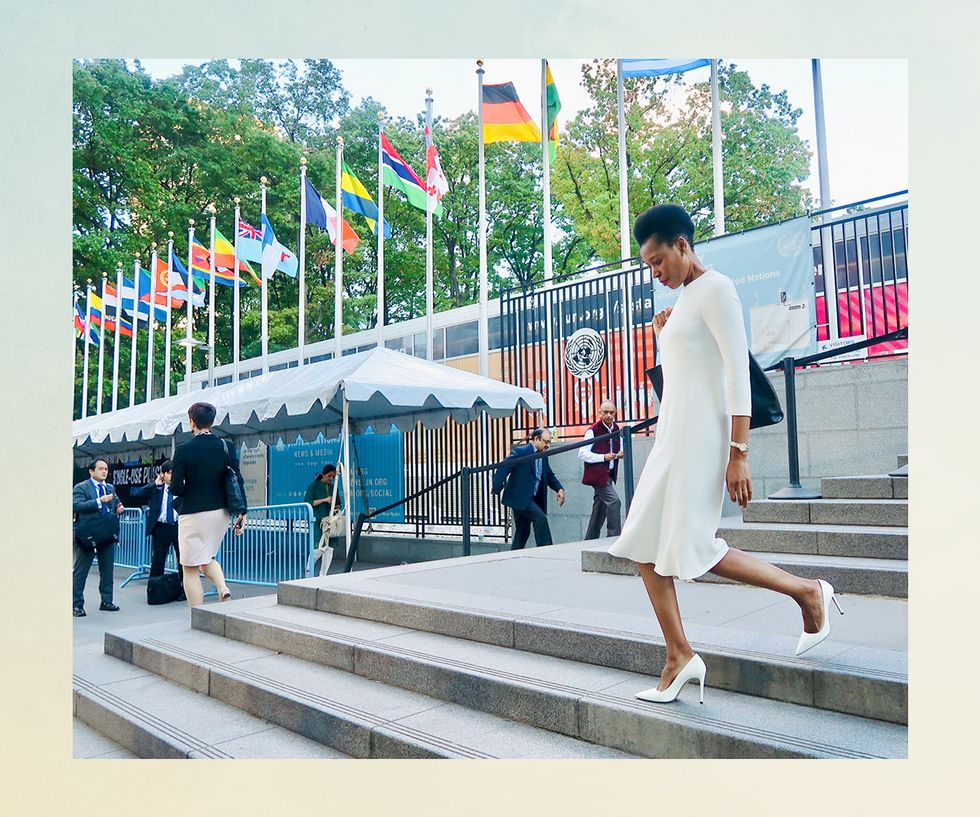
Nyamayaro at the United Nations headquarters in New York City.
AH: I'm so happy for you. I'm so happy for all of us. Because I think you're touching on something that's so important. And it's something that's taken me a really long time to learn—and if we can hopefully pass this down to the [next] generation so that they get a head start on it—is your external circumstances should never be the factor that defines your self-worth.
EN: Yeah. I've questioned everything about myself growing up. While I was at the British school, my skin, all of a sudden, became an issue. Was my skin too dark? Was my hair too curly? Was my accent too thick? And then it's something that you realize more than anything else, being your true self is enough. That's all you can do. Because everyone else is taken. You might as well just be yourself. I think that’s actually a famous quote from someone.
AH: I love that one. Another one that I love is, “It's not my business what other people's opinion is of me.”
I mentioned earlier that I want people in power to read this book… The reason that I want them to read that is because I want us all to understand that if we have any power at all, we should be making it not quite so hard for someone like you to be able to realize a dream. You and I met when you invited me on behalf of UN Women to become a Global Goodwill Ambassador, and you have made your life's work, gender equality. And that means that you and I both know that the status quo is slow and that it is going to take over 100 years for us to reach parity. So my question is for you, as a brilliant woman and an expert, what is something everyone can do immediately, today, to put an end to gender inequality?
EN: I think you kind of skimmed through that quite fast because, you and I, we've been in the trenches on this issue.
AH: You have been in the trenches!
EN: Well, you were in the trenches with me. What was really interesting [then] was your courage to say, "Let's figure out a way to engage those in positions of power." Because, as we know, many issues of gender inequality are about power. Who has it? How do they use it? And for whose benefit? And currently right now men make the majority of decisions across all levels of society. And you and I have been working as part of this HeForShe Initiative, which is a solidarity movement for gender equality, to engage men and, in particular, those men in positions of power to do more with that power in a way that serves all of humanity. And we have worked on very inclusive policies, which you have been a big champion of. For instance, Paid Parental Leave, to also make it equal for women. Because these inclusive policies not only benefit women, they benefit all of society.
I want to share one of my favorite moments by the way. I remember speaking to you and we're talking about what needs to happen, and we're going to engage all these powerful CEOs. And then you said, "But I'm now part of the UN. And I also want to make sure that we make it equal for the staff of the UN. Why don't we have Paid Parental Leave policy in the UN?" But it's a much more complicated thing. It requires all the heads of states to agree to it.
And you said, “Can we just speak to the Secretary General about it?” And Phumzile Mlambo-Ngcuka, [the Executive Director of UN Women with the rank of Under-Secretary-General of the United Nations] who was my boss, we sort of thought, "Well, that's a bit bold." [Both laugh.] But you did it anyway. You had a conversation with him, and you made it very clear that it was very difficult for you to go out and do your work, and tell the world to be equal, when the UN itself wasn't leading by example. And he listened to you. And none of our Goodwill Ambassadors had ever done that, by the way.
AH: Let me just mention the Secretary General was extraordinarily receptive. And it wasn't a case of my needing to convince him. He was very much already there. But that boldness that you were talking about, I have to say, I was very inspired by you. And by the righteous ambition of HeForShe, and how extraordinary I thought it was for you to compassionately look at the scenario and say, "Yes, historically men have been a huge part of the problem which means automatically they must be part of the solution." You created a space within a culture for men who do want to uplift women. And by creating that space, we've now seen a lot of men step into it.
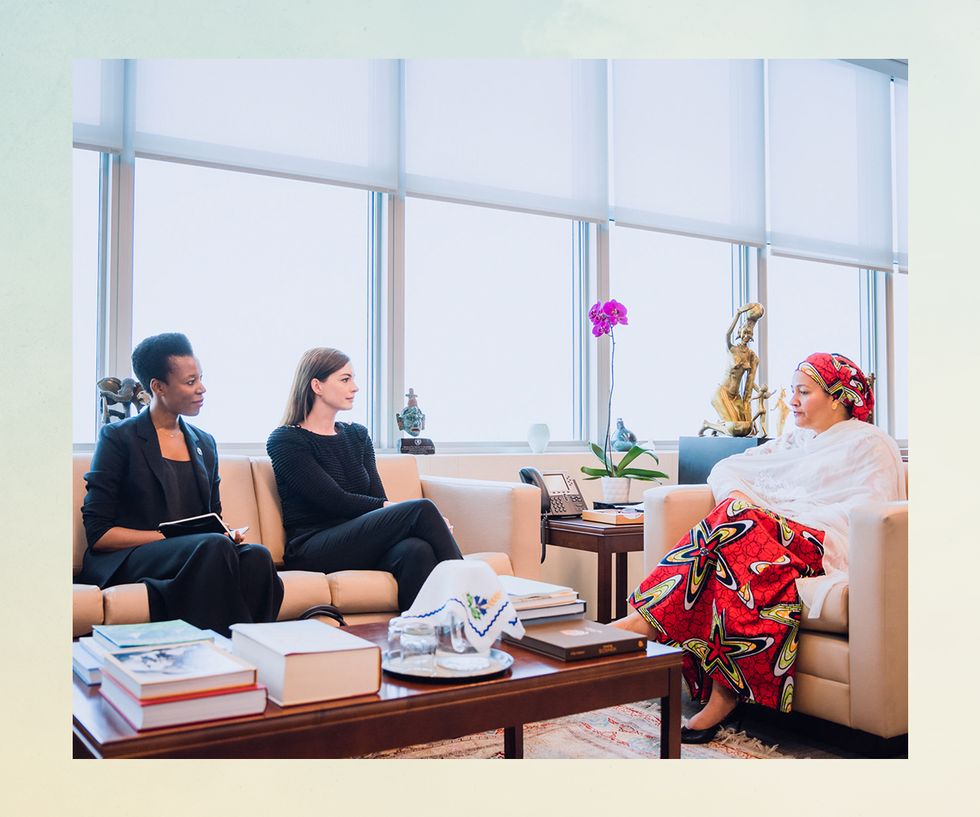
Nyamayaro and Hathaway meeting with United Nations Deputy Secretary-General, Amina Mohammed.
EN: I think that is a really good time for your previous question which was, “What can we all do?” One of the things we can all do is create solidarity and create inclusive movements. Because it's never going to work if it's just one set of society working alone. What HeForShe really did was to create a new normal of an inclusive approach to gender equality. It’s about all genders being invited to the table to work alongside women and girls, in creating societies of equality. Because if you look at the history, there are so many women who have come before us who have made it possible for you and I to sit here today and have a chat. Because they've put in so much effort into creating gender equality, but yet we are still very far from where we need to be, because it's often been seen as an issue for women led by women. And we can't do it alone. We need to have all of society, all genders, working as a collective. And so that has given me so much hope that, with everyone, with all hands on deck—and we've seen some of that impact already—we can actually get there at a much faster pace than trying to do it alone. It's a movement that was built on the principles of Ubuntu—if we are to dehumanize each other, we also are dehumanizing ourselves.
AH: HeForShe gave space for people who have stepped into the world in an over privileged position, who were born into a position, who have an imbalance in the amount of privilege that they have, it gave them a chance to redistribute it. Where they could be a part of saying, "I see this for what it is, and I'm going to take responsibility for making sure that the buck stops with me. And that my generation is the last one." A quote that I love is Napoleon Hill’s, “A goal is a dream with a deadline.” And currently our deadline [for gender parity] is 100 years. and I just think we're going to do better than that.
And to bring it back to your book for a second, I hope it's a rallying point for people. Because you're so unflinching in what you share about your life, the beauty of it, the hardship of it, the what was actually required for you to become you. And the world is going through an unprecedented time, and people are probably really struggling to maybe believe in themselves. What would you say to those people as someone who has gone through extraordinary struggles in your life?
EN: I am an eternal optimist. I firmly believe that some of the most optimistic people you ever meet are from the African continent, I think it's something to do with the fact that we have overcome quite a lot and we have found a way to be resilient and take each moment as it comes.
But [right now] when you're isolated from that human connection it is very challenging. But I'm only the person that I am because of Ubuntu. I truly am because we are. There so many people that have been part of uplifting me. Who have been part of building me into the person that I am today. And I'm also able to be unflinching because I know that I'm part of a community that if I were to fall, someone would catch me. So I think one of the things that I would encourage anyone going through a difficult time is just reach out. Reach out to a friend, reach out to someone within your own community. But it also goes the opposite way, right? If you are in a secure place, take the time to reach out to somebody. We need to remind each other that we are a collective and I think the COVID pandemic is literally shown that to. Regardless of whether we wanted to believe it or not, what happens in one part of the world can indeed impact people everywhere. And that literally our well-being is interlinked. Remind [people] that we don't have to suffer so much on our own.
AH: I was speaking to someone recently, and we were saying that we were a little discouraged. The news can be pretty rough. And especially how people treat each other, that dehumanization that you were talking about, that means that you are not living in the fullness of your humanity. And that will lead you to suffer far more than you need to. And so I was talking to this person, and she just said, "Annie, I’m just trying to be a good person." And I said, "You know what, I'm trying to do that too. So if you keep going, I'll keep going. We know there's at least two of us."
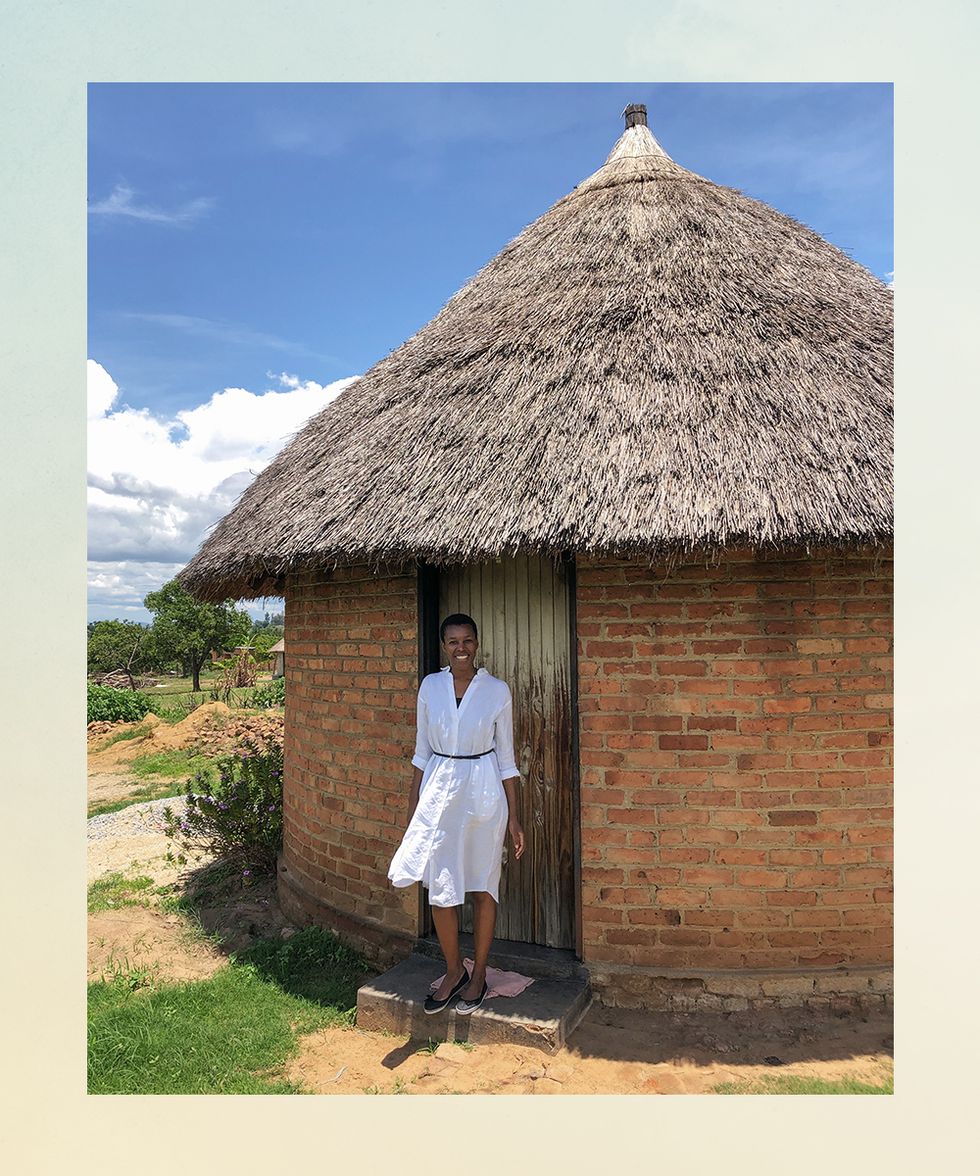
Nyamayaro pictured in her hometown in Zimbabwe.
EN: That's what it takes. And I've seen it time and time again in communities. When people take individual small actions to make a difference, often those small actions culminate into big change. So the more of us doing it, then the quicker we can create progress. So thank you, and I'm putting up my hand, I'll be the third one.
AH: What is something that's given you hope recently? Hope in yourself, in the world, and humanity? All of it, aside from your Oprah review. We just have to just scream for a while about that.
EN: I think what's give me hope is, despite all the challenges, I think we are also seeing more than ever sort of an uprise of social movements. And a lot of people don't want to live in a world that is divided; don't want to live in a world that's dehumanizing of others. Seeing the work around the Black Lives Matter movement or the Stop Asian Hate Movement. I think it gives me hope that we are getting to a point where we just don't accept things as they are. And we don't accept injustices as they are.
AH: And the thing that's giving me so much hope is this young generation that understands social justice work to be a reason to live and that we must not stop until we are all equal. And so I just wanted to mention that a part of that is having a conversation in which you might hear that something that you've done is not okay…And that you're always welcome to upgrade. You're always welcome to do better and you're always welcome to step into Ubuntu, to step into your compassion, to drop into your humanity, to acknowledge your own and acknowledge your stuff.
EN: That's really powerful. I was speaking to somebody else the other day and they were asking me, “What if someone is saying that they are experiencing racism and I don't believe them?” And I was like, "It's not for you to believe them." Nobody wants to walk around feeling like a victim so when someone says, “Hey what you've done offended me,” the least you can do is listen and not just discount them.
AH: If somebody is telling you that they feel hurt or they are experiencing racism or sexism or inequality in any way from you, listen. Listen to them, believe them. If they're saying that they're experiencing it from someone else, listen, back them up, give them space.
EN: Amen to that.
AH: So I have two final questions if you don't mind. Elizabeth, what kind of girl from Africa could teach the world?
EN: I actually think that Ubuntu, the very essence of who we are as Africans, could be one of our greatest gifts to the world…We see the humanity in each other, even in our greeting. And our Shona greeting literally translates to, “I am well, as long as you are well.” And that's how we greet each other every single day. Them taking time to actually understand if you are well. Because they know that if you're unwell, then they are unwell. And then they are going to feel motivated to do something about that. So I think that's something that we can learn from Africa in a very profound way.
AH: I think that if it's okay, I'm going to make that my greeting too…Because it's an invitation to just say, "I'm here, I see you, I receive you. How are you?" Which leads me to my last question: When can I cook you dinner?
EN: People might not know this about you, but you make mean meals. I love dinners at your house. They are so special.
AH: I'm going to hold that then that's going to happen at some point [soon]. And just thank you. Thank you so much for this book. Thank you for this time. Thank you for being so open. And I'm so proud of you, my friend.
This interview has been edited and condensed for clarity.
RELATED STORIES
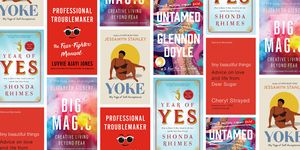
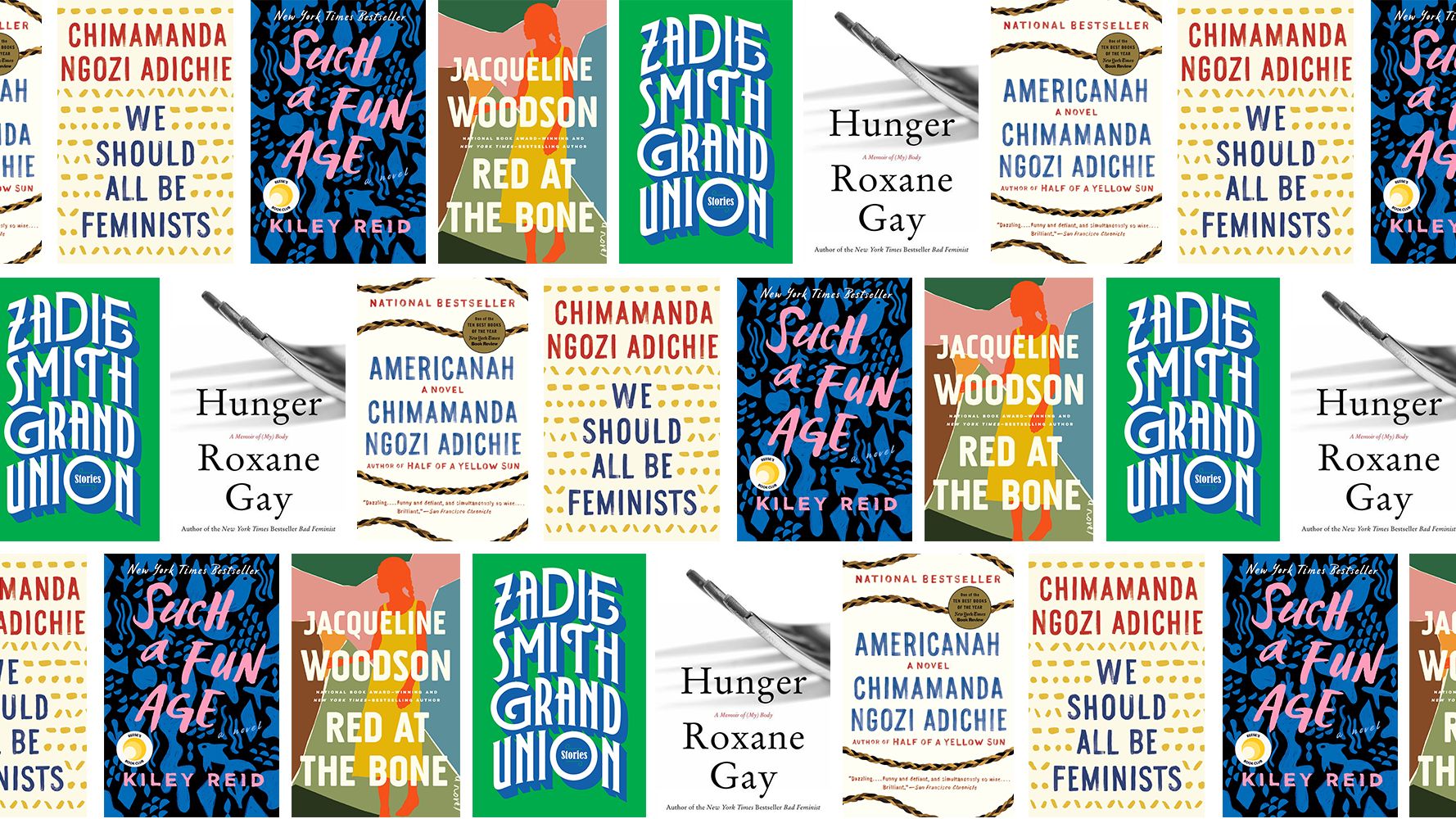
Neha Prakash is Marie Claire's Entertainment Director, where she edits, writes, and ideates culture and current event features with a focus on elevating diverse voices and stories in film and television. She steers and books the brand's print and digital covers as well as oversees the talent and production on MC's video franchises like "How Well Do You Know Your Co-Star?" and flagship events, including the Power Play summit. Since joining the team in early 2020, she's produced entertainment packages about buzzy television shows and films, helped oversee culture SEO content, commissioned op-eds from notable writers, and penned widely-shared celebrity profiles and interviews. She also assists with social coverage around major red carpet events, having conducted celebrity interviews at the Met Gala, Oscars, and Golden Globes. Prior to Marie Claire, she held editor roles at Brides, Glamour, Mashable, and Condé Nast, where she launched the Social News Desk. Her pop culture, breaking news, and fashion coverage has appeared on Vanity Fair, GQ, Allure, Teen Vogue, and Architectural Digest. She earned a masters degree from the Columbia School of Journalism in 2012 and a Bachelor of Arts degree from The Pennsylvania State University in 2010. She lives in Manhattan with her husband and dog, Ghost; she loves matcha lattes, Bollywood movies, and has many hot takes about TV reboots. Follow her on Instagram @nehapk.
